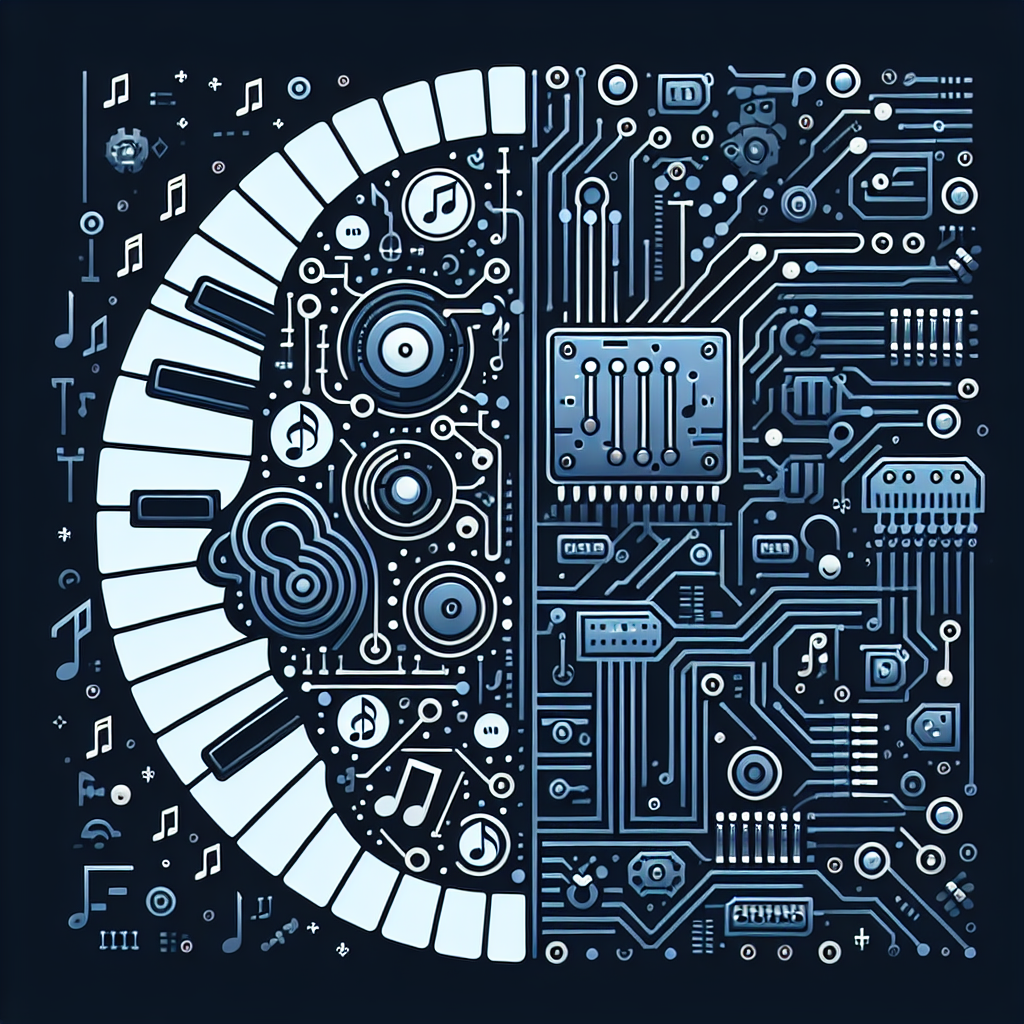The music industry has undergone significant changes in recent years, with the rise of digital streaming platforms and the shift away from physical sales. With the advent of artificial intelligence (AI), the way music is distributed and consumed is set to undergo another transformation.
AI has the potential to revolutionize the music industry in a number of ways, from helping artists create and distribute their music more efficiently, to providing listeners with personalized recommendations and experiences. In this article, we will explore how AI is shaping the future of music distribution platforms and what this means for the industry as a whole.
AI and Music Creation
One of the most exciting applications of AI in the music industry is its ability to help artists create music. AI-powered tools can analyze vast amounts of data to identify trends and patterns in music, helping artists to understand what resonates with audiences and create music that is more likely to be successful.
For example, AI can be used to analyze the characteristics of hit songs, such as tempo, key, and structure, and generate recommendations for artists based on this analysis. This can help artists to create music that is more likely to be commercially successful, while still allowing them to maintain their creative vision.
AI can also be used to help artists with the more technical aspects of music production, such as mixing and mastering. AI-powered tools can analyze audio tracks and make recommendations for improvements, helping artists to achieve a professional sound without the need for expensive studio equipment or expertise.
Music Distribution Platforms and AI
AI is also playing a significant role in the way music is distributed and consumed. Streaming platforms such as Spotify and Apple Music use AI algorithms to recommend music to listeners based on their listening habits and preferences. These algorithms analyze a user’s listening history, as well as data from other users with similar tastes, to generate personalized recommendations.
AI can also be used to help music distribution platforms optimize their operations. For example, AI-powered tools can analyze user data to identify trends and patterns in music consumption, helping platforms to tailor their offerings to meet the needs of their users more effectively.
In addition, AI can be used to help music distribution platforms combat piracy and copyright infringement. AI-powered tools can analyze audio tracks to identify copyrighted material, helping platforms to ensure that they are only distributing authorized content.
The Future of Music Distribution Platforms
As AI continues to advance, the future of music distribution platforms is likely to be even more personalized and immersive. AI-powered tools will enable platforms to offer listeners a more tailored experience, with recommendations that are based on their individual preferences and behaviors.
AI can also help music distribution platforms to offer new and innovative features, such as virtual reality experiences and interactive content. For example, AI-powered tools can analyze audio tracks to generate visuals that accompany the music, creating a more immersive and engaging experience for listeners.
Overall, AI has the potential to revolutionize the music industry by making music creation and distribution more efficient, personalized, and engaging. As AI continues to evolve, we can expect to see even more exciting developments in the way music is created, distributed, and consumed.
FAQs
Q: How is AI being used in music creation?
A: AI is being used in music creation to help artists create music more efficiently and effectively. AI-powered tools can analyze data to identify trends and patterns in music, helping artists to create music that is more likely to be successful.
Q: How is AI being used in music distribution platforms?
A: AI is being used in music distribution platforms to provide personalized recommendations to listeners and optimize operations. AI algorithms analyze user data to generate personalized recommendations, while AI-powered tools help platforms to combat piracy and copyright infringement.
Q: What are some future trends in music distribution platforms?
A: Some future trends in music distribution platforms include more personalized recommendations, immersive experiences, and innovative features such as virtual reality and interactive content. AI will play a key role in shaping these trends and driving innovation in the industry.

